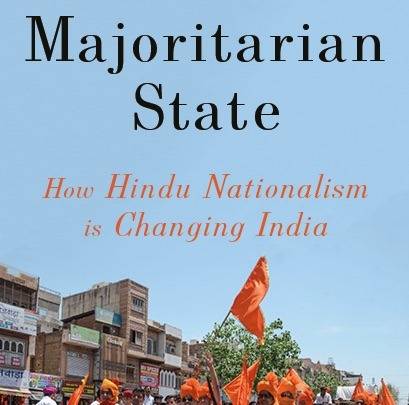The last issue of the New Humanist was received enthusiastically. The new look and powerful writing have been praised by readers. We aim to live up to that standard in this issue. With continued success and increasing readership we hope to be able to go monthly at some stage next year.
Of course, there were a few complaints. There were some concerns about unfilled white space (humanists seem hungry for text). But we have been told many times in recent years that the New Humanist is not easy on the eye and not sufficiently accessible. Some articles aroused strong criticism. But, as one reader insisted, we should go on being fearless and certainly as we are against censorship, so we are against self-censorship.* * *
Humanists are also against an overmighty state. Most humanists, while not being anarchists, would argue for the minimum state and the maximum of civil liberty. The right to individual freedom should be balanced with the need to play a responsible part in running society.
At the time of writing , the US and the UK seem to be preparing for war with Iraq. We have yet to see whether Inspection is a charade. What is the real purpose of the war? Control of oil? Removal of a dictator? Elimination of weapons of mass destruction? Revenge against terrorists? If oil we should be learning to use less. If removal of dictator how many dictators are we going to eliminate? If revenge Iraq seems to be the wrong target.
What is the real purpose of the war? Control of oil? Removal of a dictator? Elimination of weapons of mass destruction? Revenge against terrorists?
Making a nation fearful of terrorism is a way of identifying --- even if quite imprecisely an enemy. Blair and Bush are misusing their power in this way. If removal of weapons , then why not start in our back yard? David Mepham (p.20) argues persuasively that the manufacture of weapons is not essential to our economy.
Gore Vidal, in a new book entitled Perpetual War for Perpetual Peace (Clairview), delineates the way civil liberties have been damaged and constitutional rights eroded in recent years in the US. He claims that the US has for the last fifty years been waging 'perpetual war for perpetual peace' (to use a phrase from the historian Charles Beard). He also suggests that the American government acts on behalf of the interest groups largely corporate businesses --who have paid to get them elected. Perhaps in this case, the state should be mightier.
Vidal has taken a great interest in the case of Timothy McVeigh, who blew up a federal building in Oklahoma City in 1995 killing 168 innocent people. What interests Vidal is McVeigh's claim to have acted in protest against the Federal Government's destruction of the members of the Waco cult. While no one could support McVeigh's action, the mighty state's annihilation of a religious group could hardly be justified. Vidal is exercised by the imbalance between the individual and the state.
The power of the Christian right in the US is formidable. In the British House of Lords such Christian lobbying is documented by Tom Baldwin (p.10). And at a time when the right of unmarried couples to adopt is being widely discussed, Michael Rosen's view (p.8) of the diversity of the modern family has extra salience.
A counter power to the Government can be the press, whose powers can also be misused. A press that is based in communities and acting on a small scale may be more able to tell the truth than the hefty media power as Frank Jordans discusses in Media Democracy. (p.17) There is a need, as Julian Baggini argues (p.40), to look behind the news at the deeper principles underlying the stories.
It is perhaps the state's power to wage war that worries us most at the present. Humanists do not have party lines but believe in individual freedom of thought: they will be asking a lot of questions about the state's need to attack Iraq.

